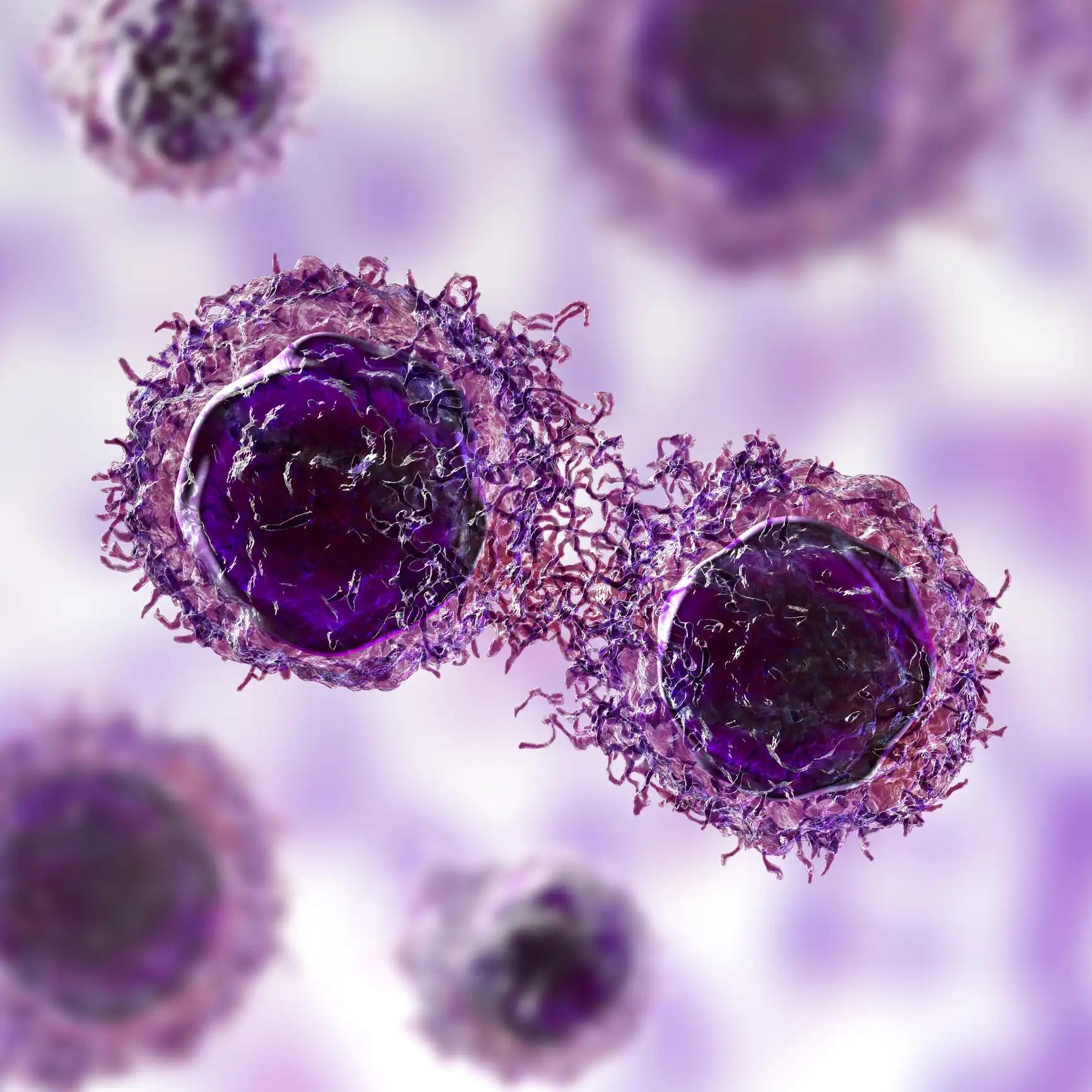KEY TAKEAWAYS
- The CARMEN-LC03 phase 3 trial aimed to compare the efficacy and safety of tusamitamab maytansine vs docetaxel in advanced CEACAM5-positive NSCLC.
- The primary endpoints were to determine PFS and OS.
- Researchers found that tusamitamab ravtansine showed better safety, but failed to meet the PFS endpoint.
CARMEN-LC03 (NCT04154956) was a Phase 3, open-label, randomized, pivotal, multicenter trial that evaluated tusamitamab ravtansine (tusa rav), a carcinoembryonic antigen-related cell adhesion molecule 5 (CEACAM5) targeting antibody-drug conjugate, compared to docetaxel in patients with advanced non-squamous Non -Small Cell Lung Cancer (NSCLC). These patients had already undergone prior treatment with platinum-based chemotherapy and immunotherapy (either combined or sequentially) and had tumors that expressed high levels of CEACAM5.
Benjamin Besse and the team aimed to assess the efficacy and safety of tusa rav in this population, focusing on improving PFS and OS outcomes in comparison to docetaxel.
They performed an inclusive analysis, randomly assigning adult patients in a 1:1 ratio to receive either tusamitamab ravtansine (100 mg/m²) intravenously every 2 weeks or docetaxel (75 mg/m²) intravenously every 3 weeks. Patients were selected based on CEACAM5 positivity, assessed by immunohistochemistry, with an intensity of ≥2+ involving ≥50% of tumor cells.
The study had dual primary endpoints of progression-free survival (PFS) and overall survival (OS), and key secondary endpoints included objective response rate (ORR), health-related quality of life (HRQoL), duration of response, and safety.
About 194 patients (22 September 2023) were randomized to receive tusamitamab ravtansine (tusa rav), with all patients receiving treatment. In the docetaxel group, 195 patients were randomized, and 177 received treatment. At this point, 61 patients (n=36 tusa rav and n=25 docetaxel) remained on treatment. Most patients had received 1 or 2 prior lines of therapy, with a median age of 64 years, and the majority were male (59.6%).
The median follow-up was 7.4 months for PFS as assessed by the Independent Radiologic Committee (IRC) and 18.1 months for OS. The median PFS per IRC for tusa rav and docetaxel was 5.4 vs 5.9 months, respectively (hazard ratio [HR]: 1.14; 95% confidence interval [CI]: 0.86-1.51; P = 0.820). The median OS (60% Information Fraction) for tusa rav vs docetaxel was 12.8 vs 11.5 months; HR=0.85 (95% CI [0.64-1.11]; P = 0.112).
The ORR were similar between tusa rav and docetaxel. Time to deterioration of disease-related symptoms, physical functioning, and role functioning were numerically longer with tusa rav. Grade ≥3 treatment-related adverse events (TEAEs) and treatment-related serious adverse events (SAEs), as well as TEAEs leading to discontinuation and dose reduction, were lower with tusa rav.
However, dose delays were more frequently required for tusa rav, primarily due to corneal events. The incidence and severity of ocular adverse events (AEs) were consistent with previous studies of tusa rav, and no treatment-related sudden deaths were reported.
The study concluded that although tusamitamab ravtansine showed favorable trends in interim OS and electronic patient-reported outcomes, it did not achieve the dual primary endpoint of improved PFS as per central review, likely due to higher-than-expected median PFS and OS with docetaxel. Tusamitamab ravtansine demonstrated better safety in several key clinical categories.
The trial was sponsored by Sanofi.
Source: https://cattendee.abstractsonline.com/meeting/20598/presentation/726
Clinical Trial: https://clinicaltrials.gov/study/NCT04154956
Besse B, Russo G. Lo, Lena H, et al. (2024). “Tusamitamab Ravtansine vs Docetaxel in Previously Treated Advanced Nonsquamous NSCLC: Results from Phase 3 CARMEN-LC03 Trial.” Presented at IASLC-WCLC 2024, September 8, 2024; Singapore.



